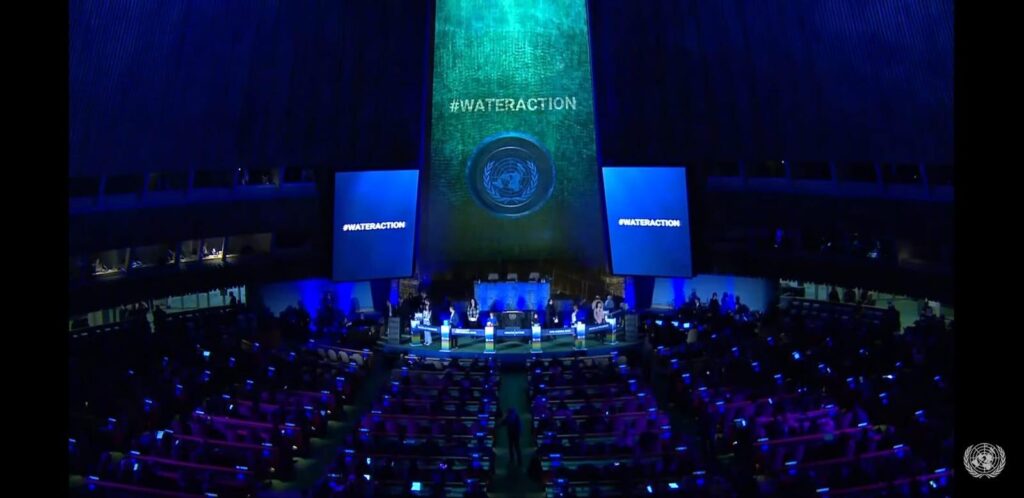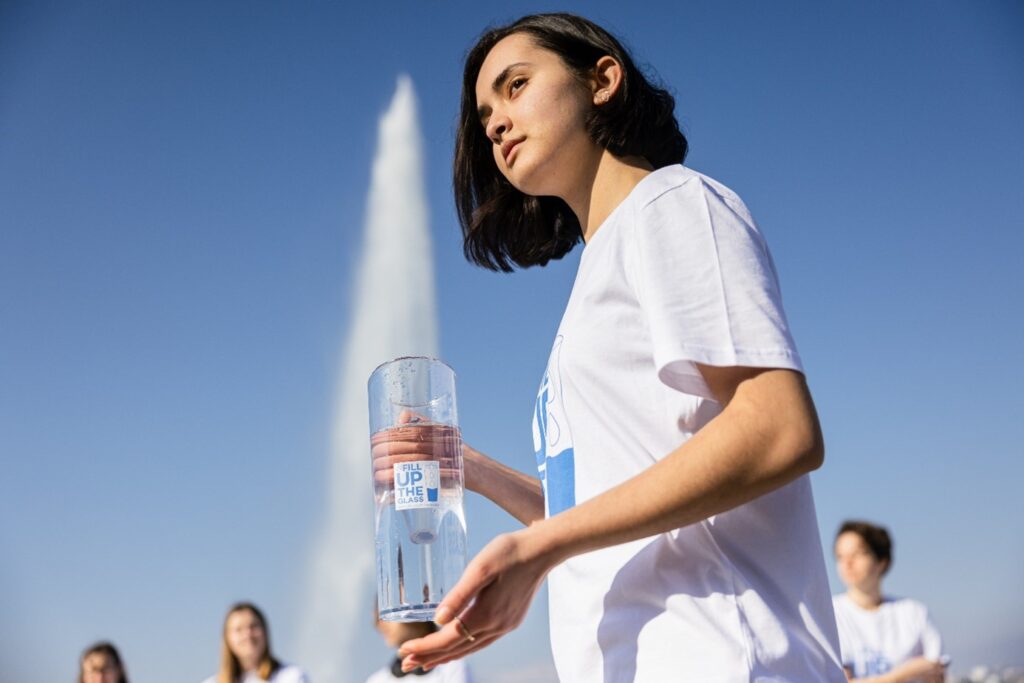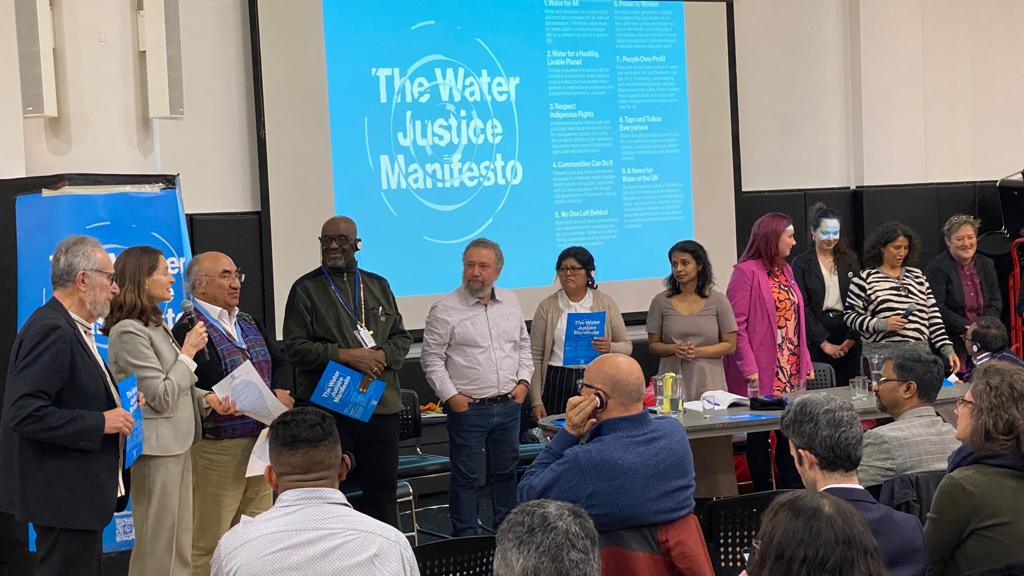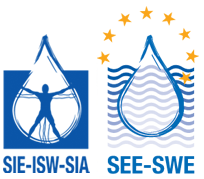From March 22 to 24, 2023, the first UN conference on water in almost 50 years was held at the United Nations headquarters in New York. This conference was an exceptional opportunity to advocate for the advancement of water and sanitation issues. The International Secretariat for Water (ISW) played a key role in mobilizing, catalyzing, and supporting the voices of change agents most affected by water-related issues, including women, youth and indigenous communities. Working with civil society and young water changemakers to bring about systemic change in water governance has been central to ISW’s strategy for over 30 years.
More than 10,000 people attended this major event, which featured more than 500 side events, intergovernmental sessions and special events attended by 8 heads of state, 6 heads of government and more than 100 ministers and parliamentarians.
The influence of ISW, youth, and civil society
Thanks to the empowerment and amplification of the voices of hundreds of civil society organizations (CSOs) and thousands of individuals from around the world, the ISW influenced the debates, putting issues related to global water governance, water and peace, and the inclusion of youth and civil society in decision-making processes, at the heart of the discussions.
- +160 people from our networks as delegates to the conference
- 10 media mentions (National Observer Canada , Corriere della Sera (Italy), Inside Climate News (USA), Anadolu Agency (Turkey), Penticton Herald (Canada), The Global Goals)
- 1 intervention during the plenary
- 450 copies of the Butterly Effect’s policy paper document distributed
- Strengthened synergies with 5 country delegations
- +10 strategic meetings
- +30 events organized and/or supported by ISW and its partners – youth and civil society – during the conference
- 15 preparatory events and consultations led by young people in different countries ;
- Participation of young people and civil society representatives in stakeholder consultations
- 5 civil society messages; 5 youth messages; 5 ISW messages disseminated during the Conference
- 1 large-scale communication campaign #FillUpTheGlass
- More than 75 young people positioned as speakers
- Leading role in opening and closing ceremonies;
Catalyzing Youth for Water
In recognition of ISW’s unique role with youth in the water space, we were invited by the United Nations to be the lead organization responsible for youth involvement and mobilization.
In the run-up to the Conference, the ISW worked collectively with the hundreds of organizations of the Global Youth Movement for Water – +370 youth organizations – to maximize the influence and impact of young people on the process and outcomes of the conference. After years of significant fragmentation of youth in the water sector, the ISW succeeded in bringing together the voices of youth organizations and allies, enabling them to convey common messages at the highest level.
Before and during the conference, and with the support of the ISW, the Global Youth Water Movement made its presence known through a number of activities, processes and dialogues.
- 5 virtual capacity-building sessions;
- Official letter to the conference organizers and the President of the General Assembly on youth engagement during the conference;
- A virtual pre-forum dedicated to young people was organized by the ISW and youth partners;
- 5 key policy messages addressing water-related issues that were presented in 150 sessions, workshops and panels.
- Matchmaking process between the 500+ youth delegates and side event organizers, facilitating their active participation in the conference.
- Daily briefings were also organized specifically for young delegates on March 22, 23 and 24, providing important updates and advice.
The “#FillUpTheGlass” global communications campaign aimed to share the key priorities of young people. The campaign was designed by, for and with young people, highlighting their perspectives and advocating for their voices to be heard. Through social media and traditional media outlets, the total outreach of the campaign can be estimated at +200,000 people.
These efforts resulted in significant youth participation and the presentation of youth priorities throughout the UN Water Conference. Two messages that were particularly well conveyed by young people at the conference were related to the systematic inclusion of young people in water-related mechanisms, negotiations, and decisions (#303030) and the call for the creation of a permanent body within the United Nations to address water-related challenges, including various youth representatives such as a UN Youth Envoy on Water.
The International Secretariat for Water (ISW) remains committed to the youth movement for water. Young people are not only the ones who will suffer the consequences of today’s choices, but they are also the catalysts who inspire everyone to contribute to the preservation of a blue planet for all.
Civil society organizations mobilized by the ISW
The Butterfly Effect coalition of NGOs seized the unprecedented opportunity presented by this conference, which brought together states and the international community to address the urgent issue of water, our most precious and limited resource. Recognizing the significance of the moment, the coalition mobilized with a shared purpose to drive change and influence the conference’s outcome. Through collective action and advocacy, the coalition aimed to create a ripple effect that would resonate beyond the conference, contributing to the resolution of the global water crisis.
Building on the positions taken at the World Water Forum in Dakar (Senegal, March 2022), the coalition widely disseminated its key recommendations regarding the need to strengthen global water governance and the need for strong political leadership to address the water crisis. The Butterfly Effect’s positions were widely disseminated in the run-up to and during the conference, at various sessions and meetings with strategic players, including various ministers and parliamentarians, the United Nations Secretary General, government delegations (Dutch, French, German, European Union, South Africa, Mexico, Colombia, Bolivia and Senegal…); to the Special Rapporteur on the Rights of Indigenous Peoples; to the Special Rapporteur on the Human Rights to Water and Sanitation; to the Head of the Human Rights Office in New York; and to many other stakeholders.
The coalition’s advocacy messages have garnered significant attention, and key aspects have been embraced at the highest level. For instance, there is growing support for the proposal to hold regular intergovernmental meetings on water within the United Nations. Additionally, the establishment of a Special Envoy on Water to the UN Secretary-General and the creation of a new global water information system are gaining traction as crucial measures. These developments demonstrate the increasing recognition of the coalition’s recommendations and reflect a positive step towards addressing water-related challenges on a global scale.
One of the notable achievements of the Butterfly Effect coalition during the New York Conference was their active involvement in a side-event organized by the Peruvian government titled “From Mar del Plata to the UN 2023 Water Conference: Where do we go?”. The event facilitated fruitful dialogue among diverse stakeholders, including representatives from civil society, youth, delegations from Peru and Senegal, the European Commission, and the private sector (AquaFed). With approximately a hundred participants in attendance, this gathering created a valuable platform for key actors to discuss the crucial matter of enhancing international water governance. The event allowed for exchange and collaboration, emphasizing the shared understanding of the need to strengthen efforts in managing this vital global resource.
The Butterfly Effect was also a signatory to the joint civil society manifesto, endorsed by over 450 organizations, to which the Secretariat contributed in drafting paragraph 9 on global water governance.
During a networking event preceding the Conference, the manifesto was formally delivered to influential figures, including Pedro Arrojo – UN Special Rapporteur on the Human Rights to Safe Drinking Water and Sanitation, José Francisco Calí Tzay – UN Special Rapporteur on the Rights of Indigenous Peoples, and Nathalie Olijslager – Program Director of the United Nations Water Conference New York 2023, representing the Government of the Netherlands. The manifesto’s significance was further emphasized when Pedro Arrojo presented it during a plenary session at the UN Conference.

The Butterfly Effect at the UN Water Conference in a nutshell
- 17 members mobilized in New York
- 1 Policy Paper presenting the ley demands of civil society
- 1 contribution to the Water Action Agenda,
- 2 contributions to global consultations,
- 1 contribution to the concept note for Interactive Dialogue 5
- Participation in the New York preparatory meeting in October 2022
- Participation in various working groups for better coordination of civil society organizations
- Strengthening synergies with youth as an integral part of civil society
- Organization of 2 online information workshops
- Regular information sharing (newsletter and publications on social networks)
- Regular dialogue with various stakeholders (member states, private sector, civil society organizations, etc.)
- Strengthened synergies with the delegations of numerous international players working to strengthen international water governance, such as the European Commission, and the delegations of Senegal, Peru and France.
Conference outcomes
Given the prior agreement that no binding outcomes would result from the conference, its main outcome is the establishment of a Water Action Agenda that encompasses more than 800 voluntary commitments from diverse stakeholders. However, there is a notable absence of information regarding the follow-up to these commitments. Furthermore, a significant portion of these commitments suffer from inadequate funding, a lack of quantifiable targets, and limited cross-border action. Consequently, there remains a substantial gap in effectively addressing the water-related challenges.
Tajikistan – co-host of the Conference – has announced its willingness to host the next UN Water Conference in 2028, and many countries (+150) have once again expressed their support for the creation of a UN Special Envoy on Water to the UN Secretary General. Some financial commitments to support the work of this Special Envoy have been announced by Germany, Switzerland and France.
The modest strides made in shaping global water governance indicate that this conference has established a valuable framework for significant mobilization on water-related issues. However, it is clear that there is still much work to be done. 
Conclusion
Although the conference brought together a significant number of voluntary commitments and raised global awareness of water-related issues, uncertainties persist as to the real impact of the event. Will adequate monitoring and evaluation frameworks be put in place to ensure that the proposed commitments are respected? And how will the conference actually contribute to improving global water governance? These questions underline the need for a clear roadmap to measure progress and ensure meaningful participation and representation of youth and civil society in improving global water governance.
While this conference has opened many doors, there is still a great deal of work to be done to achieve concrete commitments and strengthen international governance. Solutions to the global water crisis can only be found through shared actions and decisions at all levels.
The ISW will therefore continue to mobilize its networks and develop its advocacy in line with upcoming international events such as the High-Level Political Forum in July 2023, the United Nations General Assembly in September 2023 and the World Water Forum in Bali in 2024.
With the forthcoming 2024 Summit on Future, seeking to enhance cooperation on critical challenges and bridge gaps in global governance, coupled with the establishment of the first-ever UN Youth Office, the current moment presents a significant opportunity to build upon the foundations laid during the 2023 UN Water Conference. It is imperative to ensure that the role of young people and civil society representatives in achieving Sustainable Development Goal 6 is not only recognized, but also receives the attention and support it deserves.



